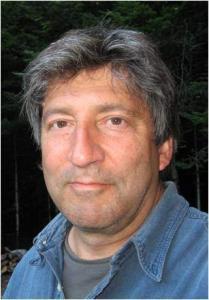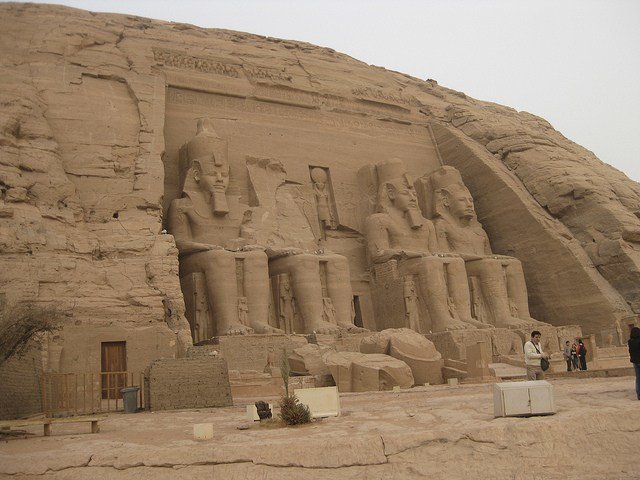Toward a New Bretton Woods and a Sustainable Civilization
by Eric Zencey
 Early in April, an international community of sustainability theorists and practitioners gathered in New York City at a special High Level Meeting at the United Nations.
Early in April, an international community of sustainability theorists and practitioners gathered in New York City at a special High Level Meeting at the United Nations.
Titled “Happiness and Wellbeing: Defining a New Economic Paradigm,” the High Level Meeting brought together 600 participants for the plenary session on Monday, April 2, with 200 invited experts staying an additional two days to form working groups to address key elements of the new economic paradigm. The meeting was called to begin the implementation of UN General Assembly Resolution 65/309, passed last year on unanimous voice vote. That resolution, brought forward by the tiny mountain kingdom of Bhutan and sixty-eight co-sponsoring nations, called for implementation of a dramatically different, more “holistic” understanding of economic development. It specifically rejected the GDP-based approach taken in the past and called for the creation and use of an alternative set of indicators that would more accurately measure human wellbeing. It also authorized Bhutan to call the High Level Meeting to articulate that indicator set, and to create a path toward its adoption.
But the meeting was about more than an indicator set. To decide what you’re going to measure, you have to know what you want to measure, and discussion of that — the ultimate purpose of an economy — subverts a great deal of traditional economic thought. And so the larger purpose of the meeting was to articulate the elements of a new economic paradigm, and to issue a call to world leaders to adopt its fundamental precepts.
The linking of development policy, pursuit of wellbeing, and alternative indicators in a new economic paradigm is a strong step toward establishing a sane and sustainable civilization that focuses on meeting human needs with ecological efficiency. To get there, centuries of infinite-planet economic thinking have to be swept aside. Traditional development theory begins with the idea that some nations are underdeveloped — nations that don’t have a western, industrial, consumerist economy. It also supposes that all the nations of the world want that kind of economy and that they can have it. But all three presumptions are false. No nation on the planet has an ecologically sustainable economy, which means that every nation, without exception, faces a major development problem. Consistent with the principles and practice of traditional neoclassical economics, western-style consumerist development has been predicated on an enormous drawdown of the planet’s stock of stored antique sunlight — oil and coal — which is a finite resource; and it has completely ignored the fact that the planet’s “sink” services — its ability to absorb our effluents, including greenhouse gases, without ill effect — are fixed and finite.
Together these flaws in neoclassical theory mean that development on the traditional model simply isn’t sustainable. America, with just 6% of the world’s population, uses 24% of the world’s annual production of fossil fuels, and similar proportions of other resources, both renewable and non-renewable. A nodding acquaintance with arithmetic is all you need to see that the western model isn’t scalable to the entire planet.
The traditional model of economic development presumes that raising GDP (gross domestic product) is the central purpose of economic policy. Increasingly, world leaders are recognizing that GDP is a poor measure of economic wellbeing, which is itself just part of overall wellbeing. Thus, the High Level Meeting to explore, articulate, and adopt an alternative. Bhutan’s leadership of this movement traces back to its adoption of gross national happiness as a way of measuring economic and social progress. Their use of this broader, more accurate indicator set led them to reject western style development. Faced with a decision about joining the World Trade Organization, government officials did a kind of “GNH Impact Assessment” and found that joining the WTO would diminish, not increase, their country’s wellbeing. The Bhutanese propose that their indicator set could serve as a model for the development of alternative indicators in other countries.
The 600-strong turnout for the plenary session, with many attendees from the UN delegations of member nations, shows that other nations are inclined to agree. What was new and impressive about the meeting wasn’t so much the content of what was said in the plenary speeches; many of us have heard, and have been saying, these things for years. What was new and different was who was saying them. The call for an ecologically sustainable economy that meets human needs is now being issued by prime ministers and former prime ministers, by presidents and secretaries of the interior, by directors of environmental agencies, by high-ranking officials the world over. And UN member nations are listening.
I took to the meeting a white paper on a project I’m involved with in Vermont, where, as a Fellow of the Gund Institute for Ecological Economics at the University of Vermont, I serve as coordinator of the Vermont Genuine Progress Indicator Project. The project brings together stakeholders — state and local officials, academics, leaders of non-profits, community leaders and interested citizens — to develop, articulate, and implement “GPI Plus,” a blending of the genuine progress indicator (one emergent standard among alternative indicator sets) and elements inspired by gross national happiness. The two complement each other. GPI is based on very clear, objective data, and measures physical things like net deforestation, net changes to air and water quality, net change in fertile farmland, and the costs of climate change. GNH is survey-driven and measures satisfaction with life in nine broad categories. Combining the two — using hard data about economic and ecological reality and survey research data about people’s experience — gives a fuller, more accurate picture of the economy’s sustainable, delivered wellbeing.
The Vermont project is moving forward, with a Data Inventory Meeting set for late May. (The first step in building the alternative indicator set is to convene producers and users of relevant data to see what we’ve got, what we can start with.) And a GPI Plus bill is making its way through the state legislature, having gained approval in both houses with minor differences; the Governor has indicated he’ll sign it. The bill commissions the GPI VT project as a state effort, identifies the Gund Institute as the leader, and would guarantee the participation of state agency heads and other officials in the process of development.
At the UN, the working groups that met April 3rd and 4th were tasked with laying the groundwork for a major international summit to be held in the summer of 2014. That meeting, UN officials hope, will result in a “New Bretton Woods Agreement,” a major rethinking and major reorganization of the economic and financial institutions that support the global economy. The Bretton Woods Agreement, signed in 1944, has been modified a bit — gone are the fixed exchange rates of the post-war era, just as Frederick Soddy advised — but it continues to embody an “infinite planet” model of economic development. With this High Level Meeting, the UN has acknowledged that it’s time to revamp our economic thinking and our institutional arrangements in light of the reality that the planet is, in fact, finite.
During the plenary sessions, there was little talk of steady-state economics or limits to growth from the keynote speakers, though the majority of the experts who participated in the working groups are well aware that the only sustainable foundation for the economy is a steady-state throughput that doesn’t increase (and indeed, will need to decrease) ecological footprints. I was part of a working group in which infinite-planet financing — debt-based money — was discussed. We tagged it as a driver of uneconomic, resource-destroying growth and marked it for change. Other groups entertained even more ambitious ideas: one proposal would simply do away with the $72-billion-a-year advertising industry, on the grounds that its reason for being is morally indefensible and, by the light of any appropriate indicator of well-being, economically dysfunctional: it encourages the planet’s wealthiest consumers to pursue whims and to feel idle wants as crucial needs, while the basic needs of a vast number of humans on the planet go unfulfilled.
Whether and how a New Bretton Woods Agreement will address the monetary system as a driver of uneconomic growth and environmental degradation remains to be seen. The nations of the world are on a learning curve, and how far along that curve they can be brought in two years will depend on how well the message is communicated — and on the kind of resistance that’s raised by beneficiaries of the current system, who can be expected to throw their considerable financial resources into an effort to stymie change. Ultimately our unsustainable global economy harms all humans, everywhere, now and yet to be born; but in the short term the harms do not fall equally. As I’ve argued elsewhere, on a finite planet, an infinite-planet financial system works as a pump, sucking money, wealth, and quality of life from the middle and lower classes and delivering it to the well-to-do. Kleptocracy — rule by thieves — is the technical name for it. History offers no examples of kleptocracies that withered away of their own accord.
No, success in bringing about a sustainable economic system won’t come simply as a result of the real-world lessons the planet will continue to offer us, as our infinite-planet system repeatedly crashes into non-negotiable, physical limits. It will come from a successful reframing of crisis as symptomatic of a need for dramatic and far-reaching change, and from mustering enough political power to implement that change.
Stay tuned.
—
Eric Zencey is a Fellow at the Gund Institute for Ecological Economics at the University of Vermont, visiting faculty in architecture and urban planning at the Sam Fox School of Design and Visual Arts at Washington University in St. Louis, and Visiting Associate Professor of Historical and Political Studies in the International Programs of SUNY Empire State College.
A best-selling novelist, he is also the author of Virgin Forest: Meditations on History, Ecology, and Culture and the forthcoming The Other Road to Serfdom and the Path to Sustainable Democracy, to be published this fall by the University Press of New England.








Eric, I doubt if the a New Bretton woods meeting will face up to the idea of a zero growth economic system. My own attempts to talk about this have been met by incredulous comments from intelligent people who are steeped in the idea that the only way forward is through economic growth. They view the concept of zero growth like a return to a world of tallow candles and oatmeal bannocks. However we do have one important fact in our favour and that is that most of Europe and North America is in fact in a state of zero economic growth at the moment. This of course is not the type of zero growth economy we are advocating but it may be an opportunity to attack the problem more obliquely. Many of the ideas proposed for a sustainable zero growth economy could usefully be employed to combat unemployment and encourage recycling and use of sustainable local products. These would be popular with voters at this time and politicians might be prepared to advocate them as a short term solution. However since economic growth looks like it won’t return soon they might turn into long term policies by default.
Eric – thank you for the synopsis and insights on this new economic paradigm. It is encouraging to know that new pieces of the the new puzzle are being developed. I would like to share another economic paradigm that is taking shape; Symbiotic Demand. Symbiotic demand is the enabling structure for shared value and other cutting edge ideas on how to integrate ecological values into our economic structure. At is fullest, it is the “positive opposite of tragedy of the commons.” It is illustrated at: https://prezi.com/tpfaewgz1jie/apportioning-ecological-values-and-costs-through-symbiotic-demand/
Thanks, gentlemen. Bob: it occurs to me, reading what you wrote, that when we pitch alternative indicators to political types, one selling point will soon be something along the lines of: “Look, you want to be able to show constituents that things got better on your watch. The old measure–GDP–is flatlining. You’ve got to switch to a better, more accurate indicator set [and pursue policies that raise it].” It just might work. Tim: I’ll check it out….
The problem is that we’ve been fed the benefits of economic growth from the days of Adam Smith and his ‘invisible hand’ As a fellow Scot I don’t wish to be too critical of the great man but his theory is now so ingrained in the economic infrastructure that a frontal assault on it is unlikely to succeed and few politicians with their eyes on re election in four or five years will risk putting it forward. Our best hope in to infiltrate the ranks with alternative suggestions which offer solutions to the present problems without them being seen as overtly zero growth. This may seem a little under hand but when your outnumbered and out-gunned you have to revert to guerrilla tactics.
Just as it feels good to be surrounded by 600 like minded folks concerned about sustainability and the necessity of revamping our economic models and admitting that economics is not science, you can bet that very wealthy capitalists (job makers if you wish) are ensconced in private enclaves reinforcing their epistemologies of the world’s economic systems should operate. The ones with their hands on the levers and tillers make jocular references to the 99% and the UN community meetings of tree huggers. I know, because I once had a seat at the UN top and witnessed the disparaging comments on NGOs and academicians and other do-gooders. The core of the issue is a bi-modality condition that will need to be addressed: Solzhenitsyn’s “people are sheep” reality and Wall Street monied power brokers are the bimodal facts of our world. Noam Chomsky and others are not likely to break up this bimodal distribution of human society anytime soon. And if they somehow success, I hope you have a year’s worth of food in your locker like any good Mormon. For Earth’s Sake keep thinking positively. Cheers, Tim Foresman
There is only one kind of Real Life Economics defined by the energy cycles to, from and within the biosphere. Studying these cycles is science, unlike political economics that is a game of gambling. Adding morality to the game of economics does not make it a science but a belief system. Science measures reality in SI units.
The exchange of energy must be understood as cycles of energy transfer through multiple species, in other words, by analyzing whole ecosystems, and not only looking at a single species at a time. Humanity is a single species. The highest biodiversity with the least need for external energy should occur in environments featuring extensive food webs with versatile linking and most economic cycles.
We must live responsibly instead of daydreaming and playing games. Converting biodiversity into human monoculture is evil.
Sakari: the whole point of Ecological Economics as a discipline is to conceptualize the human economy as a thermodynamic system that draws low entropy from the planet and excretes high entropy back into it. Since the laws of thermodynamics apply to all physical activity on the planet, they apply equally to ecosystems (which run on daily solar income) and economies (which, if they are to be sustainable, must do the same). The first and second laws are the avenues through which economy and ecology will be integrated–conceptually and practically. Other schools of economics are faith-based–they depend on a faith that we can grow forever, which in turn depends on the faith that technological development will solve any problem that technological development can create. But thermodynamics says there are limits to what technology can do (and that therefore that faith is mistaken): no process or machine can convert high entropy into low entropy, waste into valuable matter or energy, without causing a larger, offsetting increase in entropy somewhere else in the system. You can’t push car backwards and fill your gas tank: there is no engine that can convert heat, motion, and exhaust into usable liquid fuel. A political economy built on these principles will have a firm foundation in science, but will also address moral issues (such as distribution of wealth) that the current economic paradigm shoves aside by reasserting its faith that everyone can have more of everything by and by.